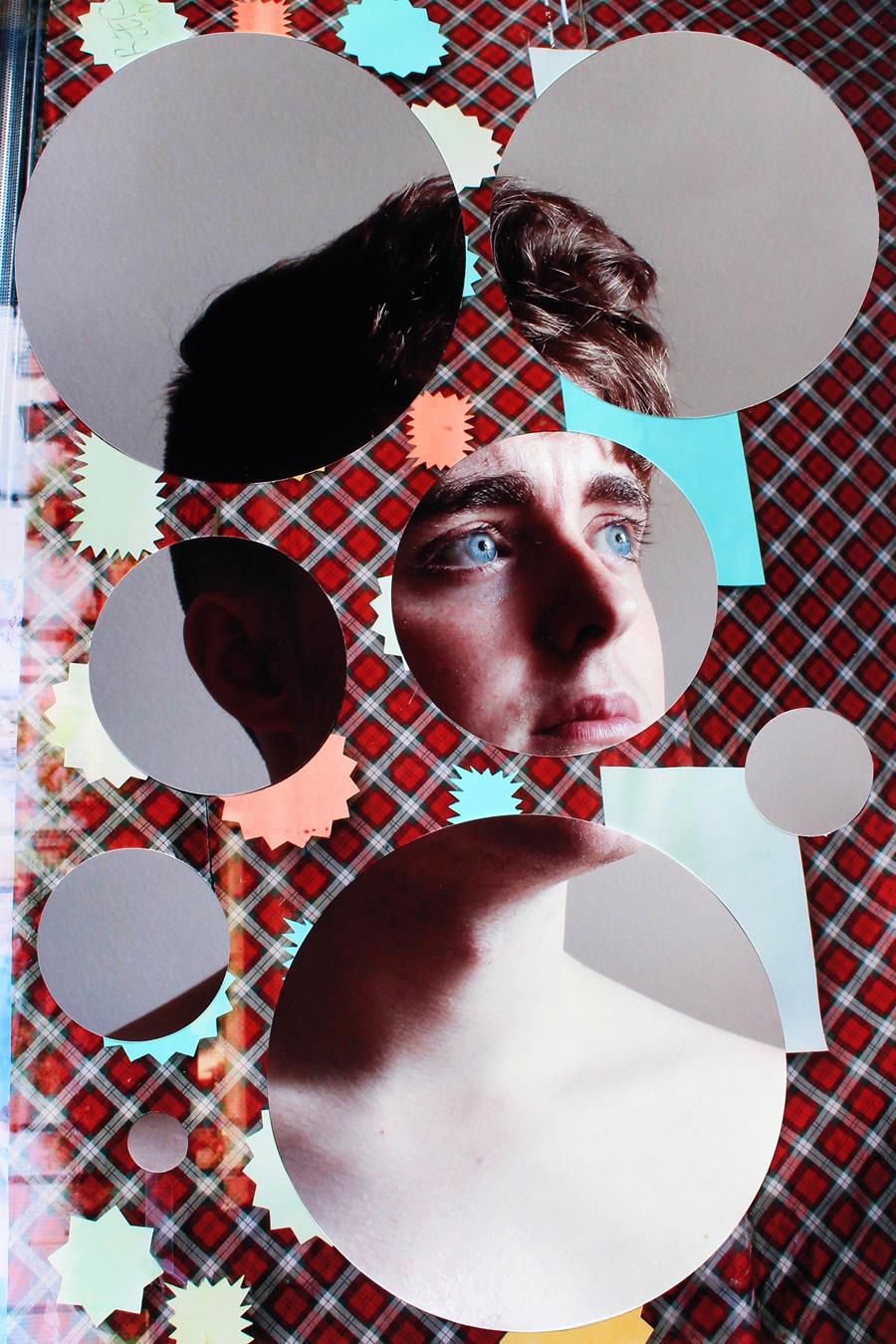
Mounted photographic print in sprayed wooden frame, adhesive vinyl
44 x 30 x 3 cm
Nigel Grimmer's work investigates the complexity of identity within queer digital culture. Drawing from a pool of online volunteers, Grimmer employs an interdisciplinary approach, including techniques such as collage, assemblage, embroidery, metalworking, knitting, and crochet. Grimmer's exploration of identity serves as a potent reminder of the fluidity and malleability of self-concept, inviting the viewer to question their own assumptions about identity, self-expression, and the role of digital culture in shaping our contemporary understanding of what it means to be queer.

Mounted photographic print in sprayed wooden frame, fabric sleeve, adhesive labels
44 x 30 x 3 cm
Collage provides the chance to re-edit the world around you, to draw parallels, to question givens and to tell your story. Being a photographer, collage gives me the opportunity to retell the history of photography, challenging what I see as exploitative or unethical. There is something both cathartic and honest about the physical manipulation of material that becomes lost in digital processes; tearing up the photo of a previous lover is not the same as deleting it from your phone…
Nigel Grimmer

Adhesive labels on photographic print
44 x 30 cm
I use my art practice to explore and question the language and canons of photography. Collage and assemblage allow me to physically manipulate, rearrange and censor this material. Historically, I researched family photography, but more recently I have turned my focus on images created for social media. My project ‘Analogue Disruptions’ is a visual investigation of queer self-representation within social media, specifically dating apps and Instagram. I work with volunteers from these on-line platforms creating new portraits; each shoot is a small collaboration. There is no digital manipulation of the images, the model sees the finished images during the shoot to enable their input into the creative process. Physically the works playfully explore a variety of photographic formal visual concerns, particularly the disruption of boundaries between analogue and digital media. I incorporate crafting techniques of collage, assemblage, embroidery, metalworking, knitting and crochet. There is a tension between these crafts which are seen as traditionally feminine, effeminate or camp and the often gym-built masculine bodies depicted in the work, however the crafts are often produced by the model depicted in the image. The crafts censor or hide elements of the digital images, referencing the manipulation and self-censorship apparent in the images employed in the apps. Through obscuring the model’s face, I set out to critique photographic history and traditional practices.
Nigel Grimmer

Mounted photographic print in sprayed wooden frame, adhesive labels
44 x 30 x 3 cm

Cut photographic prints
44 x 30cm
Nigel Grimmer was born in 1982 in the United Kingdom where he is still currently based.
For Your Viewing Pleasure
What to watch, read, and experience, as curated by the Collé team.
Out and About
What to watch, read, and experience, as curated by the Collé team.
